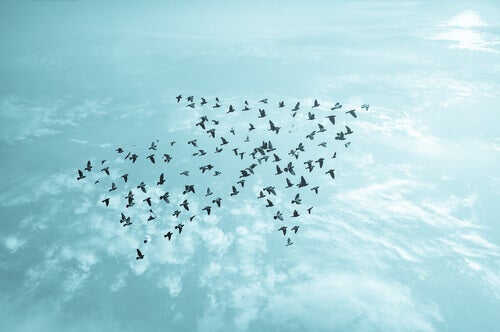We are all studying or at least hearing about Darwinian theory of evolution. Now, do we really understand what natural selection means?If we ask the majority of the population about evolution, we will probably find answers such as: “Does it say, humans come from monkeys ?, survival is the strongest ?, is natural selection a thing of animals, technological advances allow you to avoid it ?, or ‘evolution occurs when species become increasingly adapted or developed’.
The claims we’ve described are loaded with errors that show us that very few people really understand what natural selection is, so let’s get started. The central idea of Darwinian theory is that species adapted to their environment will survive and those that do not adapt will eventually disappear, but what does it mean to be adapted?Adaptation refers to a species’ ability to reproduce and ensure the survival of its young in a particular ecosystem.
- From the misinterpretation of this central idea have emerged many myths and errors.
- In this article we will see the most common ones.
- Let’s talk about: (a) natural selection as a linear process.
- (b) differential adaptation of species (c) natural selection as everyone’s struggle against all.
One of the most common misunderstandings is to see Darwinian evolution as a linear development of species, as if they were changing from generation to generation. 2. 0, 3. 0, 4. 0, etc. Evolution is not like moving slides one after the other. This error may be due to the way the evolution of man is taught as a succession of different hominins, not as a change of branching.
When it comes to understanding natural selection, the metaphor of the sieve is more suitable, on this screen many stones are thrown, but only those that have the ideal shape are selected, the others are discarded and then, over time, these rocks and other novelties arrive. re-thrown into another sieve, where they are re-selected and in this way, in a subdued continuum, some rocks remain for a long time and others disappear.
Humans, as well as other living beings, play the role of these rocks selected by the sieve of the environment, so living beings that do not adapt to the context will disappear or have to change their environment and during this process, mutations and changes of species occur that can go through selection or simply remain forgotten. A small important difference is that the context varies over time, a species or individual adapted in the past may not adapt in the future, and vice versa.
One of the most common and erroneous phrases is that it says that “human beings are the best adapted animal on Earth?”Are we at the top of the evolutionary pyramid?. If we use the definition of adaptation, we will see that it consists in surviving, having offspring and ultimately surviving existence (without ending in the existence of others or having the power to do so). In addition, we infer that all species that currently exist are equally adapted, whether or not they exist, cannot exist in greater or lesser quantities.
From this perspective, many mention the great achievements of the human being or the great intellectual capacity that distinguishes us from other living beings, now, just as the cat used its claws to survive, the human being did so through his intellect. He has different qualities that allow him to survive, but they have all survived.
It is true that humans have built complex societies to fulfill this mission, while a bacterium simply does so with its resistance and its great reproductive capacity, however, I would like to use the metaphor of seeing the human being as this very struggling student. difficult to succeed, while the bacteria is the student who, reading the subject on the day of the exam, is approved. In the end, the numeric result for both is the same.
Finally, let’s talk about the myth of seeing selection as a struggle for existence or as the survival of the strongest. Remember that those who survive are the ones that adapt to your environment. If context favors those who attack, they will survive; but if the context favors those who flee, they will adapt.
Hobbes said “man is the wolf of man. “He believed that the human being, by nature, is a ruthless and selfish being who competes with his peers. However, you only have to review the principles of natural selection and observe nature to understand that it doesn’t make sense. Humans and the vast majority of species have managed to survive thanks to their mutual support. The ability to live in collaborative societies or herds allows for a better response to environmental challenges.
However, I do not mean that there is no violence and competition, in many situations this has proven to be adaptive behaviour, but we must take into account that wrestling is not the protagonist of natural selection, simply both struggle and mutual. The supports are part of the repertoire that species must face with their environment and the difficulties it can pose.

